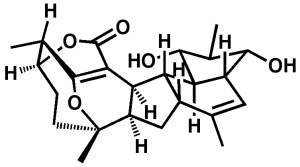David Vosburg is associate professor of Chemistry at Harvey Mudd College, Claremont, California. Here he writes about how his faith enhances, and is enhanced by his science.
A friend once asked me, “What does Christ have to do with chemistry?” He was challenging me to see how my faith might inform my plans to pursue a PhD in chemistry, and also how my understanding of chemistry might enrich my faith. I did not have a ready answer for him, so the question lingered in my thoughts for several years.
My answer developed over the following years, through prayer, reflecting on the Bible, reading many books, and talking with other Christian academics. I found a few passages in the Bible that seemed relevant to me: “all things were created through [Jesus] and for him,” and “in him all things hold together” (Colossians 1:16,17); “through him all things were made; without him nothing was made that has been made (John 1:3). What would that have looked like? It almost seems a little crazy to think of Jesus existing (though not as a human) before the Big Bang. But if he truly is God, that means he was not himself created and so must have been around in some way from the beginning. The late Dallas Willard would say that Jesus was the greatest chemist that ever existed. I am awed by this, even knowing just a small part of the universe myself. I respond by loving God and embracing science as a joyful form of worship and discovery, delightfully learning about God’s thoughts and designs at a molecular level.
As a molecule maker (like Shannon Stahl and Cale Weatherly), I especially resonate with J.R.R. Tolkien’s concept of sub-creation: human creation in humble response to God’s role as creator. In The Silmarillion, he writes:
Yet the making of things is in my heart from my own making by thee; and the child of little understanding that makes a play of the deeds of his father may do so without any thought of mockery, but because he is the son of his father.
My ability to create comes from God’s own creativity; he gave it to me. Tolkien’s concept of rejoicing in this gift of creativity reflects the joy and inspiration I experience as a synthetic chemist. I hope my students see this joy in me and grow to feel it themselves, too, as they experience the thrill of making molecules—perhaps ones that no person has ever even thought of making before!
Molecules are beautiful. I delight in them, and I believe God does, too. Making new molecules (or making old ones in new ways) is a privilege and a cause for joy and worship. How might a chemist worship God in a distinctive way? An example might be my chemistry-themed adaptation of Psalm 148:
Praise the LORD. Praise the LORD from the classroom, Praise him in the laboratory, too.
Praise him, all his molecules, Praise him, all his proteins and nucleic acids.
Praise him, all alkaloids and steroids, Praise him, all you sweet carbohydrates.
Praise him, you manifold terpenoids and you polyketides and peptides.
Let them praise the name of the LORD, for he commanded and they were created.
He formed them from the elements; he decreed how they should bond.
Praise the LORD from the NMR, all you chemists in industry and academia, whether you be famous or not,
carbon and oxygen, sulfur and nitrogen, electrons that do all his bonding,
you fluorine and chlorine, light hydrogen and heavy iodine,
all alkanes and alkenes, every alkyne and aromatic ring,
all amines and aldehydes, ketones and carboxylic acids,
esters, amides, and anhydrides, alcohols and ethers.
Let them praise the name of the LORD, for his name alone is exalted; his splendor is revealed in our every molecule.
He has raised up for his people the Christ, the praise of all his saints, of the church, the people close to his heart.
Praise the LORD.
© David A. Vosburg 2013
David A. Vosburg is an associate professor of chemistry at Harvey Mudd College (HMC) in Claremont, California. His research focuses on synthetic organic chemistry, medicinal natural products, biomimetic chemistry, green chemistry, and the relationship of science and Christianity. He regularly partners with InterVarsity Christian Fellowship and wrote a discussion guide for the film “From the Dust: Conversations in Creation” (2012). The preparation of this blog post was supported by a grant from The BioLogos Foundation’s Evolution and Christian Faith program.





